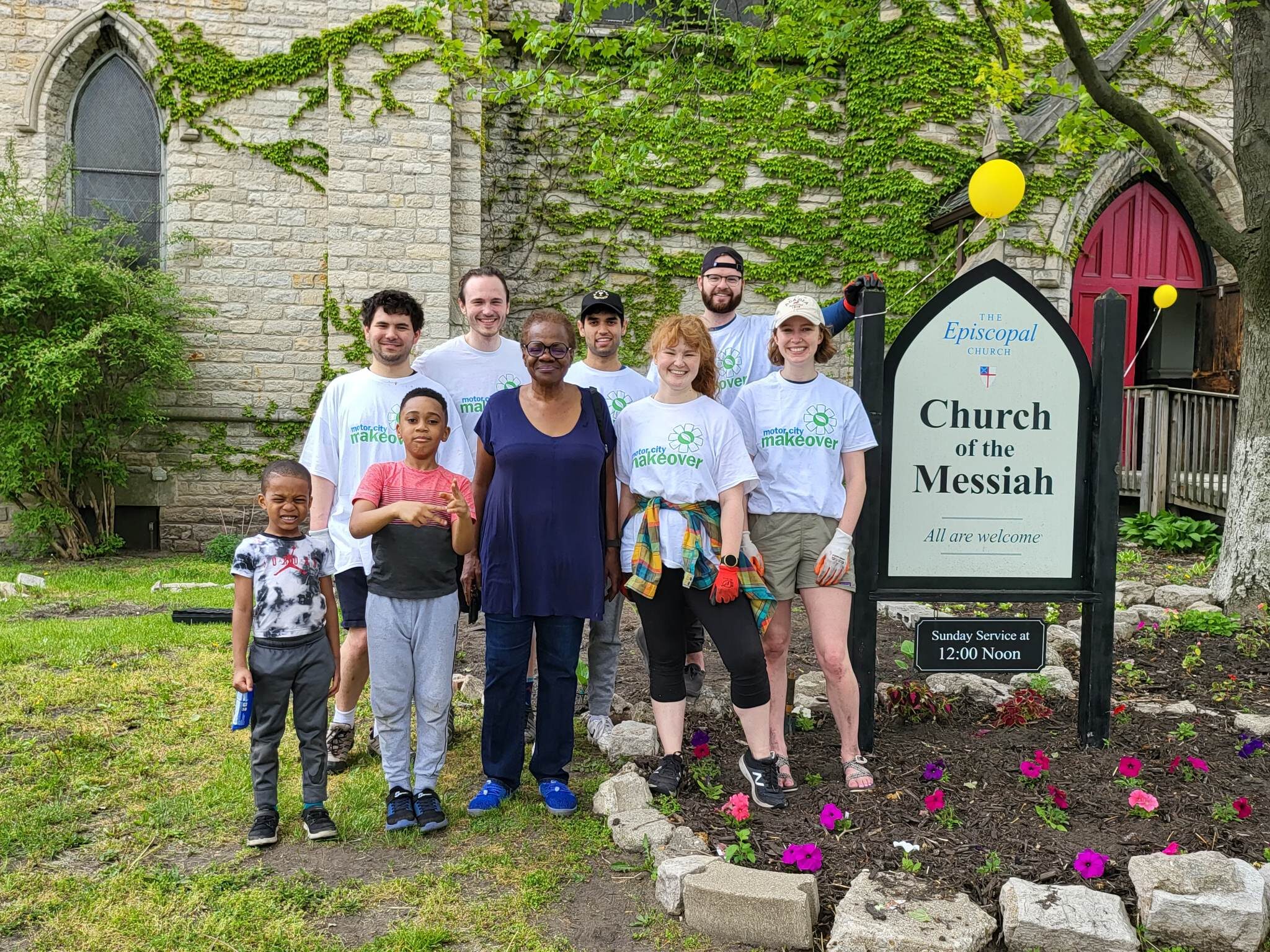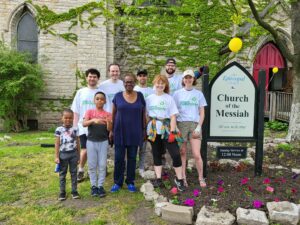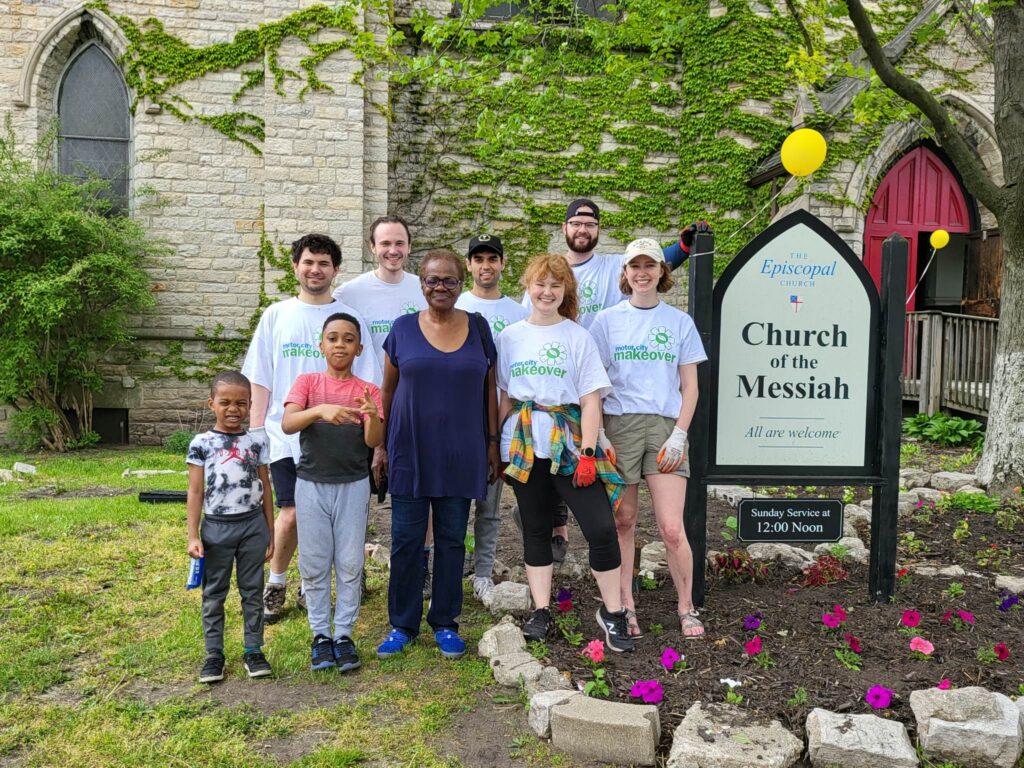Source: Special to Michigan News

Volunteers planted a community garden and helped clean up the neighborhood around the Church of the Messiah during the spring 2023 Motor City Makeover event.

Volunteers planted a community garden and helped clean up the neighborhood around the Church of the Messiah during the spring 2023 Motor City Makeover event.
Staff with the Church of the Messiah Housing Corp. are gearing up for another busy year.
They plan to renovate dozens of low-income housing units in 2024, continuing a decades-long commitment to enhancing housing stability in the Islandview neighborhood near Belle Isle in Detroit.
The Church of the Messiah Housing Corp. has been developing and providing affordable, rent-restricted housing for low-income families since 1978. Today, the nonprofit organization rents out more than 100 units of affordable housing in five developments, with plans underway to build another 95 units by the end of 2027.
It also runs an economic mentoring program that helps low-income Detroiters achieve greater economic and housing security.
Executive Director Richard Cannon said the nonprofit strives to reduce systemic barriers of inequity and biases of poverty and homelessness, address unmet housing needs and increase economic and housing stability for low-income households, with the belief that access to safe, decent and affordable housing is a basic human right.
How does Church of the Messiah Housing Corp. serve the community?
CMHC preserves, develops and provides affordable housing for low-income households. It also fosters community-based economic development by developing affordable commercial space for Detroit-resident entrepreneurs, and provides mentoring support services to help low-income households access services, education, training and employment.
Over the next three years, CMHC plans to invest more than $28 million to make major capital repairs to its existing developments. It has also begun planning and raising capital to invest $41 million to construct 95 new housing units and 3,000 square feet of commercial space for local businesses. The goal is to increase the supply of affordable, rent-restricted housing so low-income families can stay in the area and benefit from investments that create healthy, thriving neighborhoods.
In late 2022, CMHC was selected as a provider for the city of Detroit’s pilot Jumpstart Program, which provides job training, mentoring and other services to city residents who have been unemployed or underemployed for at least six months.
Tell us about a project you worked on with the University of Michigan, and what you valued most about your partnership with the university.
In 2020, CMHC conducted a review of demographic data for the Islandview neighborhood. It revealed a couple of shocking statistics: 61% of residents are either unemployed or not in the labor force, and 59% of households earn less than $30,000 annually.
In response, CMHC created an economic mentoring program to help residents address barriers to employment and increase their housing and economic stability. CMHC staff work with participants to meet identified needs, set milestone goals and prepare individual action plans. The milestone goals are in areas such as family stability, well-being, financial management, education and employment. Since the program’s inception, 134 households have received assistance.
U-M Poverty Solutions provided grant funding and conducted research that helped CMHC enhance its mentoring program based on established best practices. CMHC believes that its program’s sustained support is valuable in helping residents overcome obstacles and achieve their economic mobility goals, particularly given the results of a survey we conducted in partnership with U-M Poverty Solutions.
The survey found that many residents face multiple barriers to stable employment; even those who have job training and experience are not guaranteed stable work. These findings reinforced the need for robust navigation/coaching services to help disadvantaged individuals access stable employment and pursue economic mobility. The U-M survey also helped CMHC see additional unmet needs of program participants due to inadequate workforce systems, as well as economic or racial inequalities in Detroit.
What advice would you give to other organizations interested in partnering with U-M?
Regularly scheduled meetings were helpful to keep on task and meet the established time schedule. Surveys take a lot of time to develop and go through the U-M approval process. Plan ahead if you want to do this. Also, clarify the desired outcomes at the start of the partnership and develop an agreed upon plan to achieve them.


